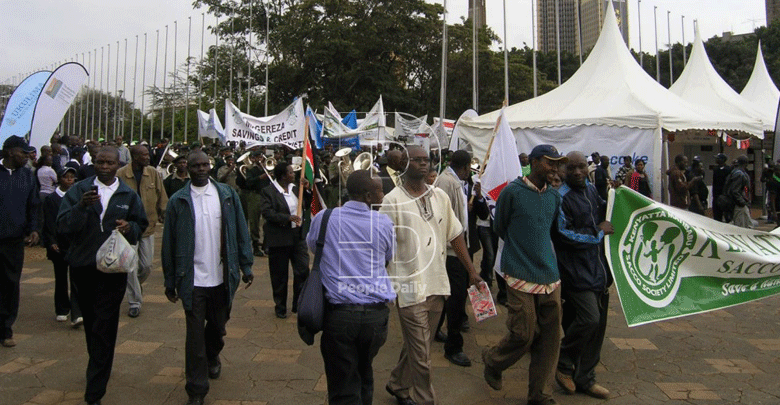
Our Projects are
Transforming African Trade
Quick Contacts
2nd Floor, Fidelity Insurance Centre Waiyaki Way, Westlands

Bogged down by poor governance and old laws, the multi-billion shilling Co-operatives sector is racing against time to turn around its performance.
For over 10 years, the sector has found itself in a situation where it cannot continue using the old laws because they are not in tandem with the Constitution, while at the same time they do not have their own laws to guide the sector.
The government is yet to operationalise the National Co-operative Policy, Non-Deposit Taking Business Regulations 2020 and deepen the prudential and market conduct measures for Back Office Services Activity (BOSA) business.
These regulations cover Non-Deposit Taking Saccos with Sh100 million and above in deposits, diaspora co-operatives and Saccos operating on virtual platforms.
In an interview with Business Hub, Commissioner for Co-operatives Geoffrey Njang’ombe said the ministry is determined to fast-track changes in the movement, though it comes years after the devolved units were established.
Kenya changed its entire constitution after many years of advocacy and activism in 2010, creating one unitary state and 47 county governments.
Business environment
Other changes being pursued, according to Njang’ombe are review of Co-operative Societies Act, Sacco Societies Act and restructuring of key co-operative institutions to align them with the Constitution and changing business environment.
The reforms, he said are geared towards taming poor governance in co-operative institutions to assist the sector fit in the current business realities and shield the financial institutions against unfair business practices.
“We have disturbing issues in the co-operatives in terms of leadership and governance which affects the management of the institutions, grand corruption and emergence of unethical professionals.
So our mission as a government is to align the current pieces of legislation to the constitution under the devolved system of governance,” said Njang’ombe.
The reforms, he added, will help in cushioning savings and credit co-operative societies against unfair business practices and equally make them stronger to compete in the current money market.
“Much of the function being held in the Office of the commissioner have been devolved, we want to harmonise the counties and national government and the entire movement on how we can operate mutually and seamlessly for members to benefit from devolution by defining the roles of each level”, he added.
The ministry, Njang’ombe said wants to come up with reforms which can put the financial co-operatives in a fair platform to be able to compete by introducing the central liquidity fund under a shared platform.
“This will enable Saccos to jointly share issues services like information technology and inter-lend to each,” he added.
Speaking recently during a co-operative leaders forum at Oltukai Lodge in Amboseli, Agriculture and Co-operative Cabinet Secretary Peter Munya said the ministry is at an advanced stage of establishing a Central Liquidity Facility to facilitate inter-Sacco borrowing and enable co-operatives to participate in the National Payment Systems.
“Sacco Societies Regulatory Authority (Sasra) is also in the process of operationalising the Deposit Guarantee Fund which will enhance members confidence in Saccos,” he said.
Read original article
Disclaimer: The views and opinions expressed in this article are those of the authors and do not necessarily reflect the official policy or position of TradeMark Africa.